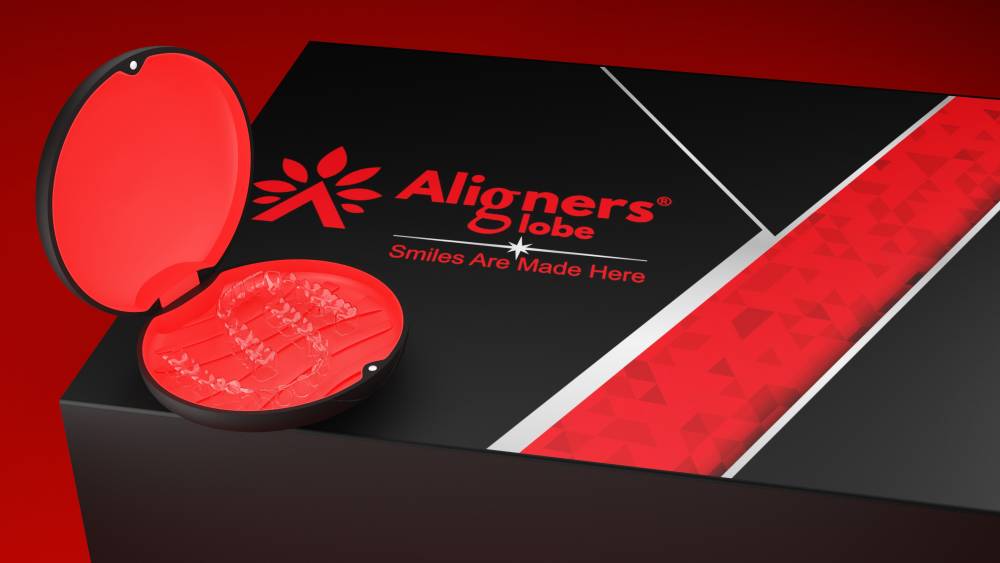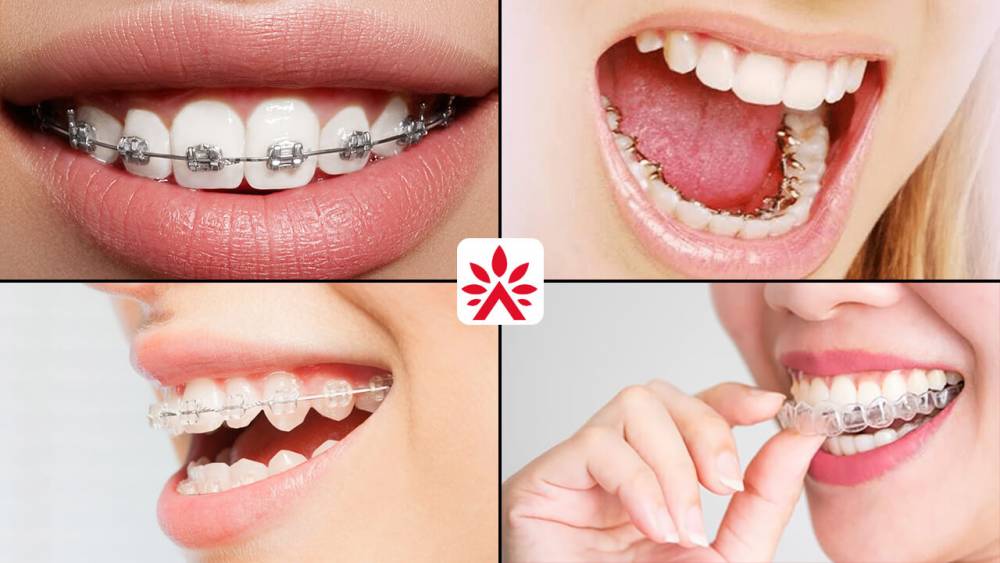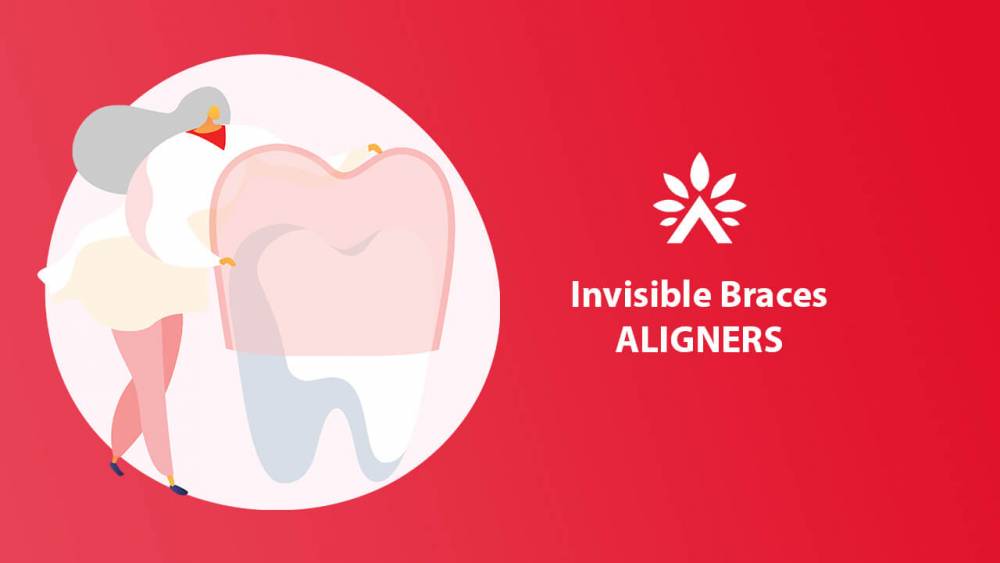
Tooth extraction/tooth removal/Wisdom tooth extraction
Why and when do you need a tooth extraction/tooth removal in Aligners and braces treatment?
In this article, we will discuss in detail why you need a simple tooth extraction, wisdom tooth extraction, and tooth extraction for Aligners or braces treatment, recovery, and aftercare.
What is a tooth extraction?
Tooth extraction or pulling visible teeth, broken teeth, teeth below the gum line, or teeth that are impacted need a more involved procedure is a quick outpatient procedure that can be done with local, general, intravenous, or a combination of these anesthesia.
Who is the doctor for tooth extraction or wisdom teeth extraction?
A general dentist is a doctor who can easily remove a simple or broken decayed tooth. Oral surgeons and oral and maxillofacial surgeons are specialized in the extraction of impacted canines, impacted wisdom teeth, and badly broken teeth.
Reasons for Tooth Removal
• A badly broken tooth cannot be restored with any dental procedure like Tooth filling or root canal treatment.
• Impacted tooth (impacted canines and impacted wisdom teeth) creating problems like pain, swelling, and hiding tooth movement for Aligners and braces to the patient. Most of the time they remain silent throughout their life and do not need to be extracted.
• Too far malposed tooth that cannot be corrected with orthodontics (Aligners/ braces)
• Gum disease with mobile teeth.
• Root canal failure.
• Extensive Periapical infection and Periapical granuloma that has damaged the surrounding bone of the tooth roots because of delaying dental appointments due to lack of awareness, dental fear, lack of money, or busy lifestyle.
• Periapical cyst and jaw tumors.
• Serial extractions in preventive orthodontics and early extraction of teeth are recommended by an orthodontist to prevent malocclusion.
• Fractured tooth root or tooth coming in the jaw fracture line.
• Malformed (deshaped) teeth.
• Retained deciduous teeth
• Supernumery teeth( extra teeth)
• Crowded teeth
How much does it cost for Tooth Extractions?
The cost of pulling a tooth/tooth removal/ tooth extraction in Pakistan is between Rs250 to Rs35000 and in other countries, it may range from 2$ to 200$ depending upon the following factors:
• Dental Hospital, dental teaching institute, private clinical setup. Private dental clinics charge comparatively more.
• The reputation and experience of the dentist, oral surgeon, and oral and maxillofacial surgeon. Senior dental surgeons and specialist dental surgeons charge more.
• The area/location and reputation of the dental clinic.
• Every country has different tooth extraction cost depending upon the value of the currency and thus, tooth extraction price varies.
• Types of tooth extraction, Anesthesia, and tooth condition
There are two types of tooth extractions
1. Simple tooth extraction
2. Surgical tooth extraction
Simple tooth extraction is carried out under local anesthesia without any cutting of gums and surrounding bone. Simple tooth extraction mostly refers to those teeth which are visible in the mouth including mobile teeth, single-rooted tooth, and it can be easily handled by a general dentist under local anesthesia. While surgical tooth extraction refers to those teeth which are embedded in bone and not visible in the mouth, they can be seen in radiographs. Surgical tooth extraction needs incision in gums and grinding of surrounding bone, sometimes splinting the tooth in sections, bone graft, and membrane, and suturing. The teeth included in Surgical tooth extraction are mostly impacted canines, wisdom 3rd molars, or teeth having sound roots but the crown part is completely damaged and is difficult to grip for pulling out and is carried out under local anesthesia with sedation or general anesthesia. The type of general anesthesia depends upon the patient's or a doctor's preference and the complexity of the case. These types of tooth extraction need a specialist dentist i.e. Specialist oral and maxillofacial surgeon.
The price of simple tooth removal costs between Rs 250/- to Rs15000/- in Pakistan and $2 - $ 50 per tooth in other countries, but it could be more if you need different anesthesia like sedation.
The price of removing impacted teeth is much higher and can range from Rs 5000/- to Rs 35000/- and $15 to $200 in other countries.
• Dental insurance coverage, the number of teeth to be extracted, and the complexity of the extraction. Most insurance policies cover most or even all of your tooth extraction expenses. How much you pay for the system depends on where you live. Since many services are based on how much it costs to live in a particular area. If your doctor accepts zero % interest financing. Like if they accept free financing or offer a discount, then this will likely reduce the teeth removal cost.
When and why do you need a tooth extraction for Aligners and braces?
In certain orthodontics cases, if you have crowded teeth or your teeth are more protruded, tooth extraction or pulling out is one of the effective methods, to align teeth, in a proper arch, to create a beautiful smile and proper bite. Removing one or more teeth will create room for malposition teeth to move into their ideal positions. In this process, a patient or other person cannot judge that you undergo tooth extractions. In the tooth extraction process, an extracted site is completely filled up with malposition teeth.
Which teeth are usually extracted for Aligners or Braces?
Pulling teeth is only done if necessary: your orthodontist will consider all options to achieve a healthy smile before recommending an extraction. For those with extra teeth or too much crowding to fit all the teeth, extraction is an extremely safe and effective way to help align the teeth properly.
The teeth mostly removed in orthodontics are the upper and lower first premolars (the teeth behind the canines) Sometimes orthodontists advised you to get extraction of malformed teeth, broken down roots, and badly decayed tooth, which cannot be restored with a root canal and other dental procedures, impacted canines, retained deciduous and impacted wisdom teeth has to be removed, which can hinder the orthodontic treatment either with Aligners or braces.
Is tooth extraction for Aligners or braces painful?
No, the tooth extraction process is not painful at all if you follow the post-op instructions given by your doctor.
With vigilant supervision from an orthodontist and a non-traumatic extraction procedure from a qualified dentist, oral and maxillofacial surgeon, or oral surgeon, your experience of extraction will be comfortable and effective and allow you to achieve the beautiful smile you deserve.
Alternative methods of tooth extraction in orthodontics
1. Arch expansion
2. Interproximal reduction
3. Molars distalization
Arch expansion is the safest method to gain space to accommodate malposed teeth, the second one is interproximal reduction (IPR). The interproximal reduction is the least invasive method because an orthodontist will cut little bit walls of the teeth to gain space. In severely crowded teeth or proclined teeth, Tooth extraction is only needed when necessary because the patient gets nervous when hearing it from their orthodontist. An orthodontist needs to do a tooth arch discrepancy analysis (how much space is required to align the misaligned teeth) first, then make a plan of IPR or which tooth has to be removed. In some cases, orthodontists move the biting teeth back to gain space and this is called molar distilization.
Is it necessary to restore the extracted tooth?
Yes, it is necessary to restore the extracted teeth by dental implants, bridge, or partial denture, in Aligners or braces, adjacent teeth can take place of extracted sites. There is no need to restore impacted canines and wisdom teeth and is decided by an orthodontist.
How to get ready for Tooth Extraction?
On appointment day, your dentist will do the intraoral examination, take a medical history, and will suggest you diagnostic X-ray if and where needed of your tooth before setting up the extraction appointment. Inform your dentist If you have any medical disease like diabetes, heart disease, blood pressure, asthma, liver or kidney disease, gastric problems or allergies, pregnancy, lactating mother, etc. and also tell your dentist about the medications, vitamins, supplements, and over-the-counter drugs you take so your dentist plan your tooth extraction accordingly. Your dentist might advise you to consult your physician to take consent regarding tooth extraction or prescribe you prophylactic medicines.
Tell your dentist if you will soon be given a drug called bisphosphonate through an IV to treat another illness. If so, the tooth should be removed before the drug treatment, or you could get osteonecrosis in your jaw (bone death).
What is the process for Tooth Extractions?
Whether your tooth is visible or impacted, it will either be easy or require surgery to remove it:
• Simple Tooth extraction
You will get local anesthesia, which numbs the area around your tooth so that you only feel pressure and no pain. The dentist then uses an elevator to loosen the tooth and forceps to pull it out, places the pressure gauze on the extracted socket, prescribes you medicines, and gives you post-op instructions.
● Surgical tooth extraction
You will probably get both local and intravenous anesthesia. Intravenous anesthesia makes you feel calm and at ease. Depending on your health, you may also be given general anesthesia if needed. With general anesthesia, you won't be aware of what's going on.
The oral and maxillofacial surgeon or oral surgeon will make a small cut in your gum before they can pull out your tooth, they may have to remove bone around the tooth or split the tooth to pull it out easily. After tooth extraction, your dentist will place stitches and pressure gauze. Give post-op instructions and medications according to the complexity of the surgery.
What are the risks of getting Tooth Removal/Extraction?
There are a few risks involved in getting a tooth pulled, but if your dentist pulls out the tooth nicely and the patient takes the medicines properly as prescribed by their dentist, and follows the post-op instructions, quick healing is more significant than the unsightly chance of problems like swelling, pain, limited mouth opening, etc.
In some cases, if patients do not follow the post-op instructions, or in immunocompromised patients when a tooth is pulled, a blood clot forms in the socket, the hole in the bone where the tooth used to be. But if the blood clot doesn't form or moves out of place, the bone inside the socket can be seen. This is called a "dry socket" and is a very painful condition. If this happens, the dentist will put a sedative dressing over the area for a few days to protect it. A new clot will form during this time.
Do Tooth Extractions hurt?
No, it cannot hurt to have Tooth Extractions because your dentist will give your local anesthesia or with a combination of sedation and general anesthesia to remove the pain while the procedure continues.
Also, dentists suggest taking prescribed painkillers or sometimes antibiotics after the procedure to help you deal with the pain.
WISDOM TOOTH
What is the wisdom tooth?
The wisdom tooth is also called the third molar and the term wisdom refers to its eruption time which is the early twenties i.e. 17 to 25. At this age, a person becomes wiser hence; named wisdom tooth.
Most of the time eruption is delayed and it erupts after 21 years of age.
Myths about wisdom tooth
Myth: If you don’t have wisdom teeth then you are unable to make decisions.
Fact: According to research around 35%-40% of the population does not have wisdom teeth but they are very good at decision-making and are remarkable in every field
Myth: Extraction of wisdom teeth makes you less wise.
Fact: It’s not true because a lot of people undergo the extraction and after that, they remain the same.
Myth: All wisdom teeth should be extracted.
Fact: There is no need of extracting them unless they are causing pain or are functionally unstable
What are the reasons for painful wisdom teeth?
1. If the space is not enough for erupting wisdom tooth it applies forces to the neighboring tooth thus causing discomfort.
2. Most of the time cleaning becomes challenging and food gets impacted around erupting tooth causing an accumulation of bacteria, hence causing infection.
3. If teeth cleaning is not up to the mark bacterial accumulation causes tooth decay of wisdom tooth and neighboring tooth as well.
4. Due to tooth infection, gum and facial muscles become stiff which causes limited mouth opening.
If someone is facing these problems they should visit the dentist as soon as possible.
To which specialist should I go for wisdom tooth pain?
You should visit a dental surgeon. After evaluation, if your tooth needs specialist services then the dentist will refer you to an oral surgeon or an Oral maxillofacial surgeon.
How do I know my wisdom tooth is erupting?
Sings of wisdom tooth eruption are:
1. Pain at the back of jaws both upper and lower.
2. Swelling around the ear
3. Bleeding
4. Bad breath
5. Fever, if Infection occurs
6. Difficulty in mouth opening
7. Neck swelling on the erupting side
How do I know if I have a wisdom tooth or not?
Some people have constricted arches and do not have enough space for wisdom teeth, so their teeth may not erupt during their whole life.
If you notice bulging out of gum around your early twenties it means your wisdom tooth is erupting.
Also if you want to know whether these teeth are present or not you have to take an X-ray OPG or some times CBCT scan.
What if my wisdom tooth will not erupt?
If your wisdom teeth have not erupted and are present silently in bone during your whole life it does not make any difference. No need to worry about it.
Is it necessary to extract all wisdom teeth?
No, there is no need to extract them if not causing any problem and are upright and in a functional position because they give support to your oral structures and help in chewing.
What are the reasons to extract wisdom teeth?
At the time of eruption some problems can be subsided by taking medication but other needs extraction:
• Tooth decay occurs when there is food impaction and oral hygiene is not up to the mark.
• If a wisdom tooth is angulated or tilted it will be difficult for the tooth to erupt perfectly.
• If there is recurrent pain and swelling, extraction is a good choice of treatment.
What is the procedure of wisdom tooth extraction?
Tooth extraction is always done under local anesthesia. Some tooth can easily be removed without any incision but other needs a surgical procedure depending on the position of the wisdom tooth. If the patient does not cooperate with extraction under local anesthesia, then it needs to be done under general anesthesia.
An impacted wisdom tooth may be placed horizontally, diagonally, or vertically. If there is enough room for them in the oral cavity they will come out normally by breaking the gum line. And if they do not erupt and are stuck partially and causing discomfort then they should be extracted.
Will keeping wisdom teeth affect my braces?
Not in every case, they should be extracted because they exert only a little pressure on other teeth. Mostly orthodontic treatment starts before their eruption, so after treatment, if there is good space for them they will show up normally.
After treatment if a wisdom tooth erupts it does not cause movement or crowding of front teeth, these movements are because of the patient’s negligence as they do not follow the instructions of wearing retainers.
If your treatment starts in the late twenties then your dentist will decide to keep or extract the wisdom teeth.
Summing it all up
No need to worry about wisdom teeth if they are present or not. It’s just a tooth, not a different entity that is present in your mouth, if it’s hurting you, you just need to visit your dentist.
Extracting wisdom teeth do not make any difference, so don’t panic if your dentist advised you to remove them. In our Orthodontic center, a team of dental consultants including a general dentist, oral surgeons, oral and maxillofacial surgeons, work with an orthodontist. If you want to book an appointment with them, don’t hesitate to contact us.
Posted On 06 Dec, 2022


